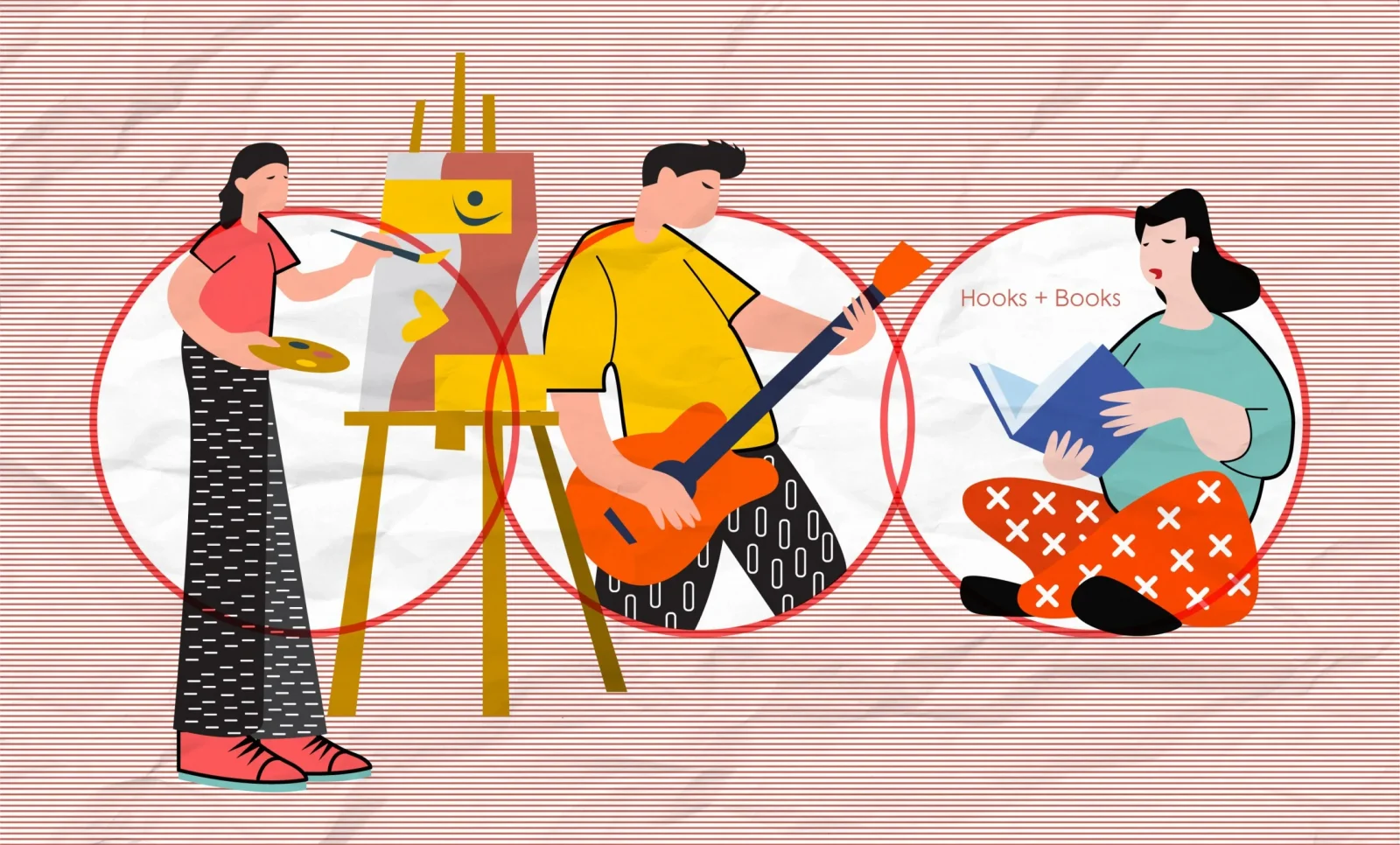Little monster, big ocean

I would rather be a small fish in the ocean, than a big one in a tank. Yes, not just a pond but the vast ocean.
When I first joined a school, I was just a dwarf chameleon fish. Technically, I was already well-bred in a tank. Even before I turned 3, words and letters flowed as naturally as the currents. I didn’t need to swim too hard against the tide because I grew up in a tutorial center run by my mom and aunt.
The tutors were my playmates, my fellow fish. I would always interrupt my mama’s teaching session by shouting “retets na!” (recess na) twice, eagerly sipping my Chuckie like a baby fish gulping air at the surface, my fingers barely holding a pack of chips. And to further keep me entertained, I would sit with them during their sessions and pretend to listen and understand. They even joked that alphabets are visibly dancing on my forehead because even as a small fish, I easily blended with the bigger ones.
Going back to the time when I had to explore the other parts of the ocean, I had to pass a comprehensive exam. At age 3, I became a beloved student of my mama. By day, she taught me how to swim through sentences, and by night, we dived into numbers together. Not only to sound out the letters but also to count numbers because I had already mastered those currents. It was a challenge for such a young fish like me, but the attention I craved from my mama kept me swimming hard, never resisting the current.
On the day of the big test, I saw many little fish like me. Most were clinging to their moms, some even crying, while I quietly observed—or maybe judged them—because only fingerlings were allowed to cry, am I right? My turn came, and I swam into the room confidently. I flawlessly wrote my name and age in the blue-red-blue lines. Identifying shapes and reading words? A breeze. After a short interview and some basic math, I swam out much faster than the other fish. My mama greeted me with open fins, proud of her little swimmer.
Here’s the secret: I was asked if I knew how to solve numbers. Obviously, I did, but instead uttered “No.” I didn’t want to take a risk and fail, so when the opportunity to avoid the challenge came, I grabbed it with both fins.
Years later, I was honed with that mindset. It helped me navigate through the waters of school, turning me into a stronger swimmer. Gradually, the chameleon fish was losing its ability to blend in the waters. As I started to discover my own color, the responsibilities followed. My fins strengthened as I took the lead. And I took on every treasure hunt because I loved the pearls hidden at the end of every “X.” Those pearls became my treasured trophies.
When I was 11, I left the calm, predictable waters and swam into the deeper currents. I joined the STE curriculum. I craved new currents because the water I had been swimming in felt too still, too bland. The environment changed, but my roles didn’t—I kept swimming, always moving forward, but without a true sense of direction. I was just a fish following the tide, not caring where it was taking me. All I knew how to do was swim. But eventually, I hit a wall.
The ocean I thought I was swimming in turned out to be an aquarium holding me captive. That’s why I was fed regularly without having to hunt my own. This little pond provided me comfort and fed me knowledge as I grew. But I had outgrown the tank, and I was still growing. I needed a bigger space to stretch my fins. And the aquarium owner seemed to know, so I was set free.
I swam eagerly into the true ocean. It was vast, deep, and too salty. But as I adapted, the salt shaped my skin and seasoned my soul. Then I realized that the big fish in the tank became mid-sized in the ocean. Finally, I was able to stretch out my fins and swiftly move my tail without worrying about bumping into the barrier that once confined me. I was too ecstatic and easily adjusted to my new, larger, and better playground.
But as quickly as I adjusted to the ocean, I began to forget how to grow. Perhaps it was because there was no longer a hand feeding me pellets. Or maybe this is what life feels like when you’re no longer the center of attention, no longer the only fish in the tank. It was eerily comforting, this lack of pressure, but slowly became a trap. My laid-back attitude was holding me back from swimming toward my full potential. I started to fear that one day I would look back at these waters and realize I could have swum faster, farther, and deeper.
For the other fish, life may not be a race. But for me, it felt like it should be. My lack of urgency was causing me to drift aimlessly. I enjoyed the calm waters too much. By the time I was ready to swim, the tides had shifted, losing out on opportunities. This constant state of inaction, of floating rather than swimming, is what’s keeping me from truly exploring the depths of my ambitions.
I remembered why I left the tank. It wasn’t to stay comfortable nor to let the waves carry me wherever they pleased. It was for the thrill of new currents.
This ocean is still my playground, but this time, I will take charge of my direction. I will outswim the currents of fear that have held me back. And I will dive deeper toward my dream.
Raine Patrice H. Francia, 17, has no sense of direction that’s why she’s lost. She navigates life with metaphors as her guide. Her love for writing reflects her journey through life’s uncharted waters, where words become her map.

















